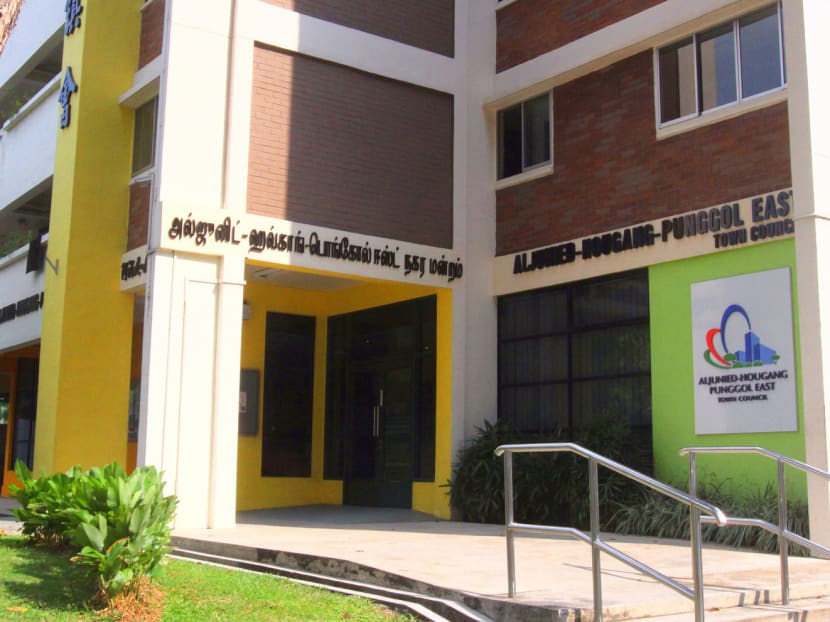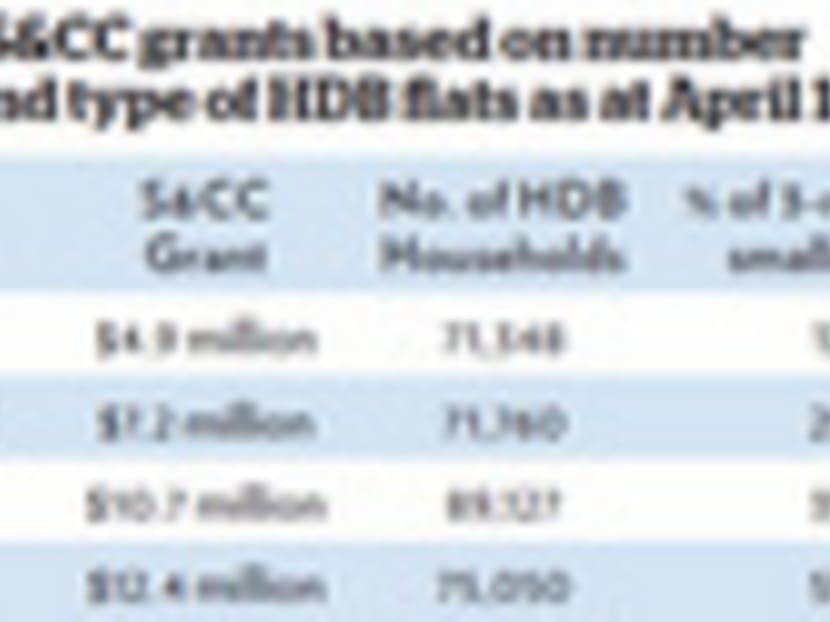MND gives details of town council grants to refute online speculation
SINGAPORE — The service and conservancy charge (S&CC) grants that are allocated to town councils (TCs) by the Government are based on the number of Housing and Development Board flat units and flat types, with smaller flats getting higher grants, the Ministry of National Development (MND) said yesterday.
SINGAPORE — The service and conservancy charge (S&CC) grants that are allocated to town councils (TCs) by the Government are based on the number of Housing and Development Board flat units and flat types, with smaller flats getting higher grants, the Ministry of National Development (MND) said yesterday.
In responding to media queries on how the grants — which enable TCs to subsidise the S&CC for residents living in four-room flats and smaller — are calculated, the ministry also said the formula has been in place since 1999 and is applied consistently to all town councils. It added that the amounts are not based on the number of voters in each TC.
The MND’s statement yesterday came in the wake of concerns about the high arrears rate at the Aljunied-Hougang-Punggol East Town Council (AHPETC). After red flags were raised, allegations were bandied about online about the size of the grants given to People’s Action Party town councils vis-a-vis that of the Workers’ Party (WP)-run AHPETC, suggesting that the former are able to post operating surpluses because they receive more in government grants. AHPETC, the online posts charged, is in deficit because it receives less.
In its response to queries about the allegations, the MND said TCs will receive more grants if they have more and smaller HDB flat types, and detailed the amounts given based on flat size. One-room flats are awarded S$33.70 per month, it said, while two-roomers are given S$26.20 per month and three-room ones, S$17 per month. For four-room households, the grant is S$9 per month. It gave several examples to explain the relationship between the percentage of small flats in a TC and the grant it receives.
Addressing another allegation — that the amount of grants given to AHPETC dropped sharply after the WP took over — the ministry said the difference was due to a one-off, S$19.2 million grant given in the 2010 financial year to offset Lift Upgrading Programme costs. This, it said, explained why AHPETC received S$26.7 million that year, compared with S$7.3 million in the 2012 financial year.
The issue of grants went on the boil after Minister of State (National Development) Desmond Lee raised concerns about what impact AHPETC’s arrears rate would have on its financial position. In a statement issued on Nov 7, Mr Lee noted that the TC’s financial position “had deteriorated rapidly” following the merger of Hougang and Aljunied during the 2011 General Election, with Aljunied’s operating surplus of S$3.3 million in financial year (FY) 2010 turning into a S$734,000 deficit in FY 2012.
His comments came after the TC received a red ranking — the worst in the MND’s colour-coded system — for its arrears rate of 29.4 per cent. It was the third straight year that AHPETC received such a ranking.
Yesterday, the ministry said that, based on AHPETC’s own financial statements, it had observed a rapid deterioration in the TC’s financial position despite an increase in income. It noted a 30 per cent increase in expenditure — from S$27.3 million in FY10 to S$35.4 million in FY12 — which outpaced an 11 per cent rise in revenue for the corresponding period.
The online reports also said that the PAP-run Aljunied TC had transferred its S$3.3 million operating surplus to the Sinking Fund after the 2011 General Election, when the WP took over Aljunied GRC. The MND clarified that a TC’s operating surplus is not affected by such transfers, which are mandatory after each election. It said the Sinking Fund, which comprises accumulated surpluses over the years, can be used to pay for future major repairs and maintenance projects.
The MND reiterated that the present Town Councils Act does not give it power to compel TCs to provide audit information to the ministry.
Only three offences attract penalties, it said: Misuse of funds, contravening rules of the Lift Upgrading Programme, or withholding information required by an auditor without reasonable cause. This, it added, is because town councils are “supposed to be directly accountable to residents”. The Act is currently being reviewed to strengthen oversight over TCs to better protect the interests of residents.








